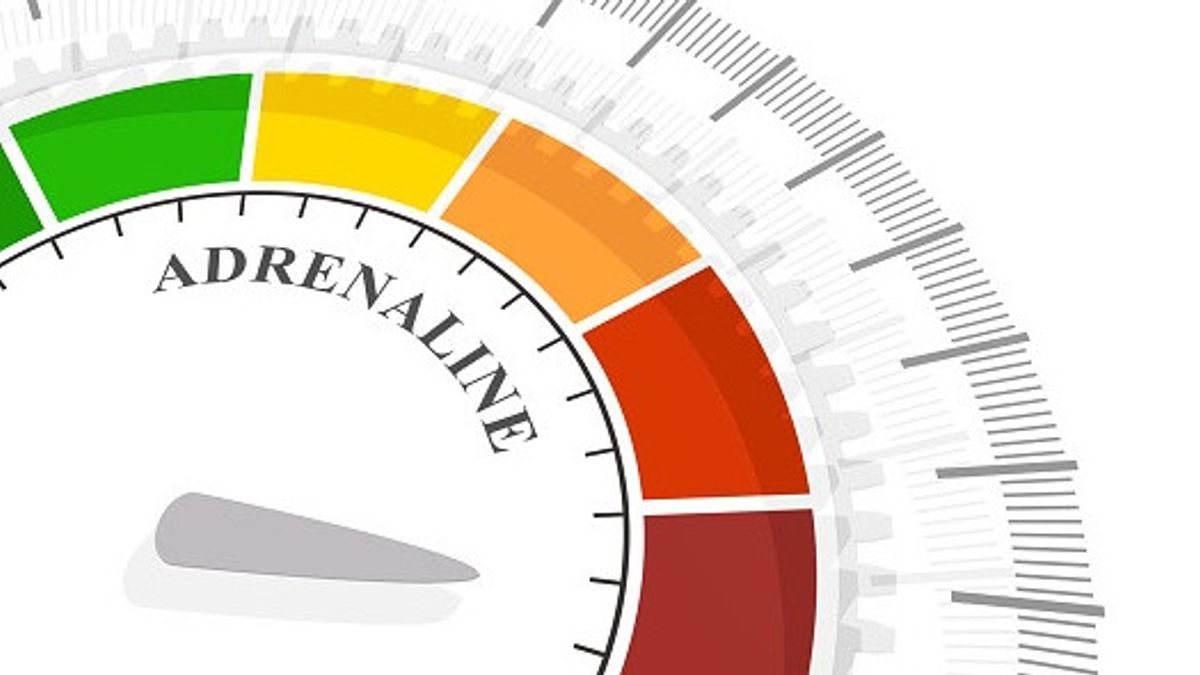JAKARTA – When undergoing a thrilling activity, the adrenaline hormone in the body works. Adrenaline is a hormone produced by the adrenal glands, its function is to prepare the sympathetic nervous system, known as the fight-or-flight effect.
Your body, while undergoing a thrilling activity experiences characteristic physical sensations. When faced with danger, for example, the hormone adrenaline works to evoke a response to the threat. Physical sensations experienced, reported by Endocrine Web, Friday, January 7, include heart palpitations, faster breathing, sweaty bodies, dilated pupils, and trembling or nervous bodies.
Certain activities, in the context of recreation, can cause an adrenaline rush. Like parachuting, roller coaster, watching action movies or horror movies. Not only in the context of recreation, when undergoing tests, presentations, speaking in front of people you admire or like also triggers the adrenaline hormone to work.
Some people like this situation, because it is considered uplifting. But those with post-traumatic stress disorder (PTSD) can experience an adrenaline rush from memories or thoughts about the trauma. People with panic disorders, such as agoraphobia and social anxiety disorder, can face frightening situations due to the action of the hormone adrenaline.

The hormone adrenaline is an important part of health in normal physiology. The body will develop its adrenal system and for millions of years, this hormone has helped humans survive from danger. However, sometimes psychological stress, emotional worries, and anxiety disorders can trigger the release of adrenaline when it's not needed.
Release when not needed, if consistently experienced can affect the balance of the body's mechanisms. At that time, adrenaline can be a trigger for digestive problems, cardiovascular disease, weight gain, metabolic problems, headaches, high blood pressure. What's more, it can affect concentration problems, sleep disturbances, anxiety, and depression.
Similarly, if the adrenaline release increases. The symptoms of the disease that have been mentioned above have the potential to be experienced. However, low adrenaline conditions are very rare.
Doctor Elena Christofides, an endoclinologist who practices at Enocrikology Associates in Columbus, Ohio, explains that most of the adrenaline is made in the nervous system. Adrenaline remains local, does not interfere with other work systems in the body. The action is systemic, so if removed can lead to hypoglycemia, poor stress response, and reduced excitement. That is, a person can experience a flat and lackluster experience.
Treatment for adrenal disorders is to treat the underlying cause. If you are sleep deprived, then improving your sleep pattern will be quite helpful. But if you have a biological abnormality, it is necessary to consult a specialist to find a solution.
The English, Chinese, Japanese, Arabic, and French versions are automatically generated by the AI. So there may still be inaccuracies in translating, please always see Indonesian as our main language. (system supported by DigitalSiber.id)













